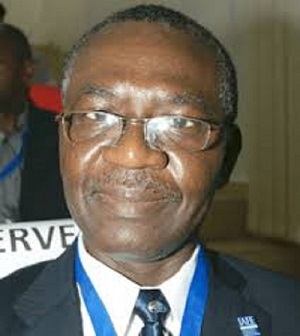…Briefing Address to the National Assembly on “Refining the PIA: Legislative Solutions for a Sustainable Downstream Sector” – Abuja, October 2025
Professor Omowumi Iledare has called on the National Assembly to exercise legislative leadership and moral courage in refining the Petroleum Industry Act (PIA) 2021, to address emerging market contradictions, institutional ambiguities, and social equity concerns within Nigeria’s downstream petroleum sector.
Delivering a policy address before lawmakers and key industry stakeholders, the respected petroleum economist described the PIA as “a landmark reform, not a flawless one.” He stressed that the credibility of reform lies not in its passage but in its periodic refinement to align with evolving realities.
“No law, however visionary, is perfect at birth,” Professor Iledare told legislators. “The National Assembly must nurture the PIA as a living statute—one that evolves with the economy, the people, and posterity.”
- Legislative Courage for Refinement, Not Reversal
Professor Iledare commended the 9th National Assembly for enacting the PIA after nearly two decades of policy inertia but urged the 10th Assembly to demonstrate stewardship through measured legislative refinements rather than wholesale amendments.
“Refining the PIA is not an act of weakness; it is an act of wisdom,” he declared. “The goal is not to rewrite the law, but to realign its implementation with its original intent—transparency, efficiency, and sustainability.”
He argued that successful legislative governance demands both policy memory and policy maturity, reminding lawmakers that reform continuity is a hallmark of institutional development.
- Key Implementation Challenges Identified
While acknowledging progress made since 2021, Professor Iledare highlighted implementation gaps that threaten the downstream sector’s stability and public trust:
Partial Deregulation: Market liberalization remains incomplete, with fuel importation dominating supply and price distortions persisting.
Market Concentration: Fears are growing that a private monopoly may be replacing the former public monopoly—contrary to the spirit of competition envisioned by the PIA.
Institutional Overlaps: Regulatory roles among agencies remain blurred, undermining accountability and efficiency.
Inoperative Infrastructure Fund: The Midstream and Downstream Infrastructure Fund, created by law, has not been fully operationalized.
Social Concerns: Labour protection and workforce transition mechanisms are weak or non-existent, risking industrial tension.
“The PIA was meant to liberalize, not monopolize,” Iledare emphasized. “The spirit of the law is competition, not concentration; transparency, not opacity; accountability, not arbitrariness.”
- Legislative Refinement Agenda Proposed
Professor Iledare submitted five key legislative proposals for the National Assembly’s consideration:
Strengthen NMDPRA Independence (Amend Sections 31–33): Limit ministerial directives strictly to policy oversight while ensuring the Nigerian Midstream and Downstream Petroleum Regulatory Authority (NMDPRA) enjoys full operational autonomy.
Require legislative confirmation of NMDPRA board appointments.
Mandate direct submission of annual performance reports to the National Assembly.
Operationalize the Infrastructure Fund (Amend Section 317):
Establish clear governance and disbursement rules for the Fund.
Enable NMDPRA to issue infrastructure bonds under legislative oversight.
Mandate annual public disclosure of allocations.
Prevent Market Monopoly (Insert new Section 210A):
Introduce explicit competition and anti-monopoly safeguards.
Ensure open access to depots, pipelines, and jetties.
Empower NMDPRA and the FCCPC to jointly enforce market fairness.
Incentivize Local Refining (Amend Section 318[2]):
Guarantee crude access for modular refiners and regional players.
Provide tax holidays and import-duty exemptions for local manufacturers.
Create transparent registers of licensed downstream investors.
Protect Labour and Social Equity (Insert new Section 251A):
Establish a Downstream Industry Transition Fund for retraining workers.
Institutionalize tripartite consultations among regulators, employers, and unions.
Mandate periodic welfare and safety reviews to safeguard industrial harmony.
“These amendments will not alter the PIA’s essence,” he explained. “They will simply perfect its purpose—ensuring that competition thrives, institutions function, and Nigerians benefit.”
- The Role of the National Assembly in Sustaining Reform Integrity
Professor Iledare reminded legislators that laws fail not by design but by neglect. He urged the Assembly to strengthen oversight through an annual “State of PIA Implementation Report”, reviewed jointly with the executive and civil society.
He advocated that parliamentary committees on petroleum (upstream, midstream, and downstream) collaborate closely with academia and professional associations to ensure evidence-based legislative interventions.
“Energy governance requires continuity of purpose,” he said. “Let the National Assembly be remembered as the custodian of petroleum governance, not merely the originator of legislation.”
- Regional Leadership and Posterity
Placing Nigeria’s reform in a broader African context, Professor Iledare urged lawmakers to see the PIA as a model of governance for the Gulf of Guinea.
“Nigeria must lead not only in hydrocarbon output but in regulatory innovation,” he affirmed. “Our laws should outlive political cycles and inspire regional emulation.”
He reiterated that posterity—not prosperity—should define Nigeria’s energy policy legacy.
“We must refine petroleum, yes,” he concluded, “but more importantly, we must refine posterity—through laws that protect the people, preserve the environment, and promote fairness across generations.”
Professor Omowumi O. Iledare, PhD, FNAEE, SrFUSAEE, FEIN, is Professor Emeritus of Petroleum Economics, Principal Facilitator at FUPRE Energy Business School, and Executive Director of the Emmanuel Egbogah Foundation, Abuja. He is a Past President of the International Association for Energy Economics (IAEE, 2014) and Fellow of the Nigerian Association for Energy Economics (NAEE).
A thought leader on energy governance and petroleum economics, Professor Iledare continues to engage policymakers, academia, and industry toward building transparent, competitive, and equitable energy systems across Africa.


Comment here